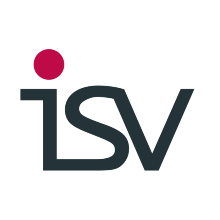Traditionally the work of transport engineers involves planning, designing, building and operation of traffic devices. Lately the attention is increasingly focused upon the conservation of the natural basis of life, the preservation of resources and the improvement of the design of the architectural environment. Rail, road, air, water and pipeline traffic can offer differentiated solutions to these issues based upon the experience of several related fields of study.
Transport engineers do not concentrate only on technically oriented mat-ters in the practice of their work but also have to go deep into detail of the goals and demands of society and to consider the social arena in question. This as-pect of their work requires within the frame of a complete planning process a foresighted acting oriented towards the future that goes beyond the responsibilities of the field of activity.
The professional field of transport engineering can be applied to numerous economic, management and private enterprise scenarios. Nowadays it offers and it will continue to offer attractive, manifold jobs with a high degree of responsibility for engineers to work out promising solutions for the future problems of transportation and traffic.
The last decade brought new job opportunities and challenges into the focus of attention of the road and transportation science as for instance:
- The relationship between urban life and traffic
- New organization of traffic in cities in terms of new architectural measures
- Further development of strategies for a sensible work-sharing between public transportation, rail transport and inland navigation as well as individual vehicular traffic, cycle traffic and pedestrian traffic.
- Improvement of the organization of the traffic flow within the different modes of transportation and the conditions of change from one mode of transportation to another (traffic system management) with new information, control and security technologies.
- Effects of the information and communication technology upon the planning of traffic roads as well as its general impact upon supply and demand of traffic performance.
- Planning procedures oriented towards landscape preservation and area compliant design for the different traffic systems.
- Consideration of environmental aspects in terms of an increase of the environ-mental friendliness of traffic devices.
- Recycling and re-use of alternate construction materials as well as the devel-opment of new strategies for the constructional and operational preservation of traffic devices.
Nowadays information processing and communication offer a broad variety of solutions to these complex problems. Along with the application and usage of modern facilities and planning techniques the people in charge of these plan-ning activities must be in the position to act in the social surroundings of traffic and to advocate this solutions even in case of a clash of interests between the different parties involved into the planning process. Today it is imperative that the student is made familiar with this new job specification.


